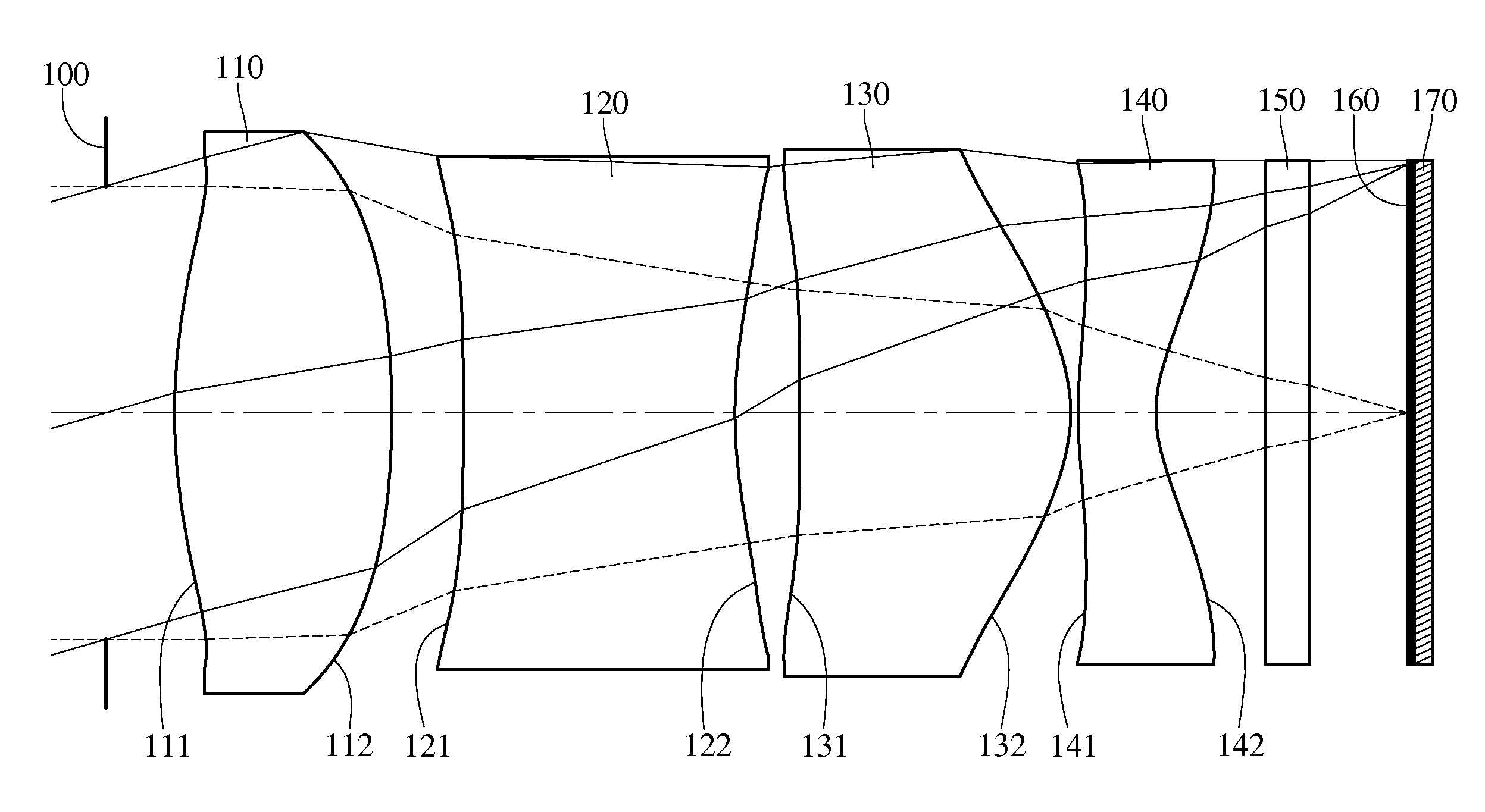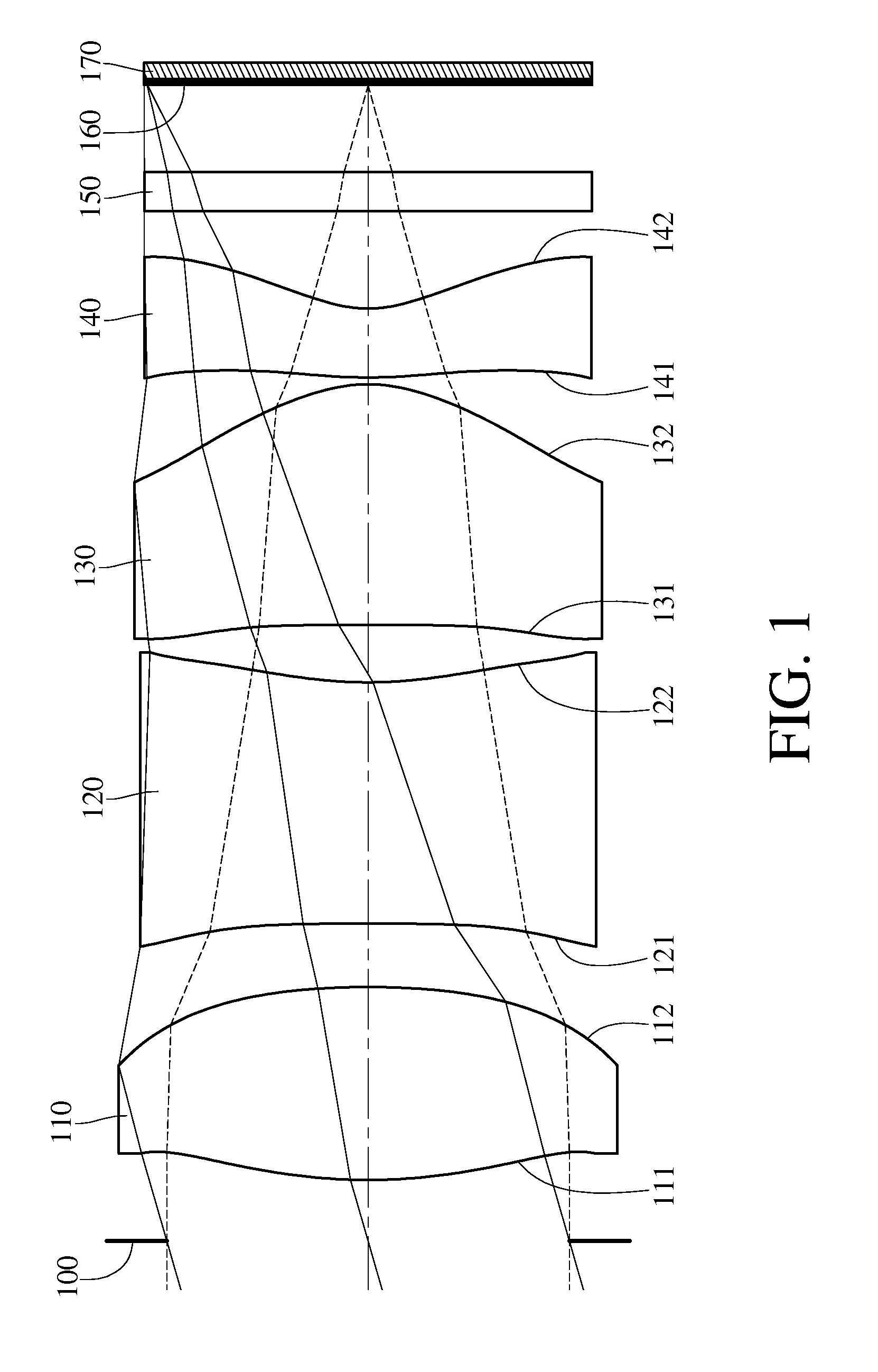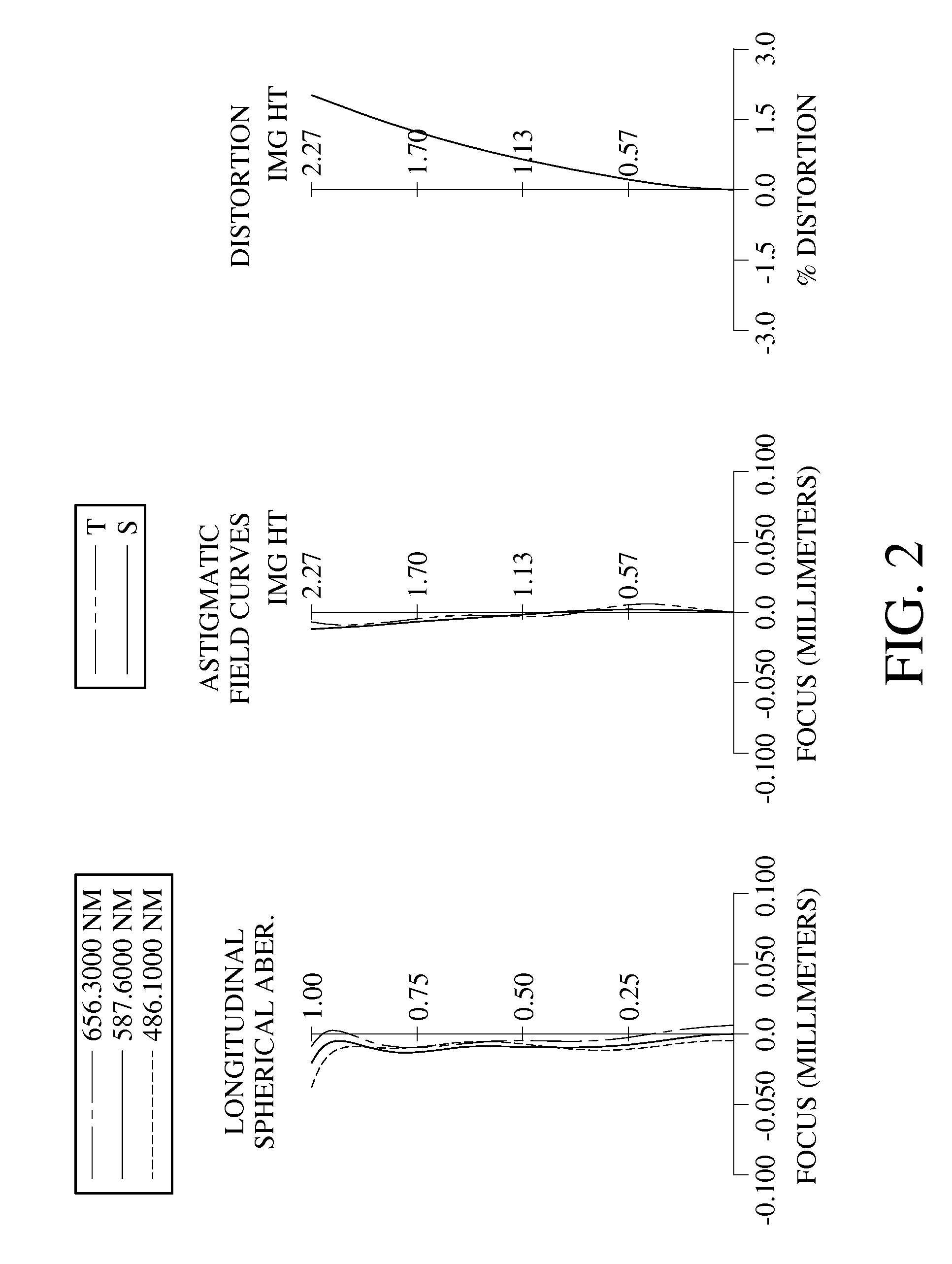Optical lens system, image capturing unit and electronic device
an optical lens and image technology, applied in the field of optical lens systems, can solve the problems of inability to meet the requirements of compact optical systems, easy damage to optical systems, and lack of stability of optical lens systems
- Summary
- Abstract
- Description
- Claims
- Application Information
AI Technical Summary
Benefits of technology
Problems solved by technology
Method used
Image
Examples
1st embodiment
[0057]FIG. 1 is a schematic view of an image capturing unit according to the 1st embodiment of the present disclosure. FIG. 2 shows, in order from left to right, spherical aberration curves, astigmatic field curves and a distortion curve of the image capturing unit according to the 1st embodiment. In FIG. 1, the image capturing unit includes the optical lens system (its reference numeral is omitted) of the present disclosure and an image sensor 170. The optical lens system includes, in order from an object side to an image side, an aperture stop 100, a first lens element 110, a second lens element 120, a third lens element 130, a fourth lens element 140, an IR-cut filter 150 and an image surface 160, wherein the optical lens system has a total of four non-cemented lens elements (110-140) with refractive power. There is an air gap in a paraxial region between any two of the first lens element 110, the second lens element 120, the third lens element 130 and the fourth lens element 140...
2nd embodiment
[0085]FIG. 3 is a schematic view of an image capturing unit according to the 2nd embodiment of the present disclosure. FIG. 4 shows, in order from left to right, spherical aberration curves, astigmatic field curves and a distortion curve of the image capturing unit according to the 2nd embodiment. In FIG. 3, the image capturing unit includes the optical lens system (its reference numeral is omitted) of the present disclosure and an image sensor 270. The optical lens system includes, in order from an object side to an image side, a first lens element 210, an aperture stop 200, a second lens element 220, a third lens element 230, a fourth lens element 240, an IR-cut filter 250 and an image surface 260, wherein the optical lens system has a total of four non-cemented lens elements (210-240) with refractive power. There is an air gap in a paraxial region between any two of the first lens element 210, the second lens element 220, the third lens element 230 and the fourth lens element 240...
3rd embodiment
[0097]FIG. 5 is a schematic view of an image capturing unit according to the 3rd embodiment of the present disclosure. FIG. 6 shows, in order from left to right, spherical aberration curves, astigmatic field curves and a distortion curve of the image capturing unit according to the 3rd embodiment. In FIG. 5, the image capturing unit includes the optical lens system (its reference numeral is omitted) of the present disclosure and an image sensor 370. The optical lens system includes, in order from an object side to an image side, an aperture stop 300, a first lens element 310, a second lens element 320, a third lens element 330, a fourth lens element 340, an IR-cut filter 350 and an image surface 360, wherein the optical lens system has a total of four non-cemented lens elements (310-340) with refractive power. There is an air gap in a paraxial region between any two of the first lens element 310, the second lens element 320, the third lens element 330 and the fourth lens element 340...
PUM
 Login to View More
Login to View More Abstract
Description
Claims
Application Information
 Login to View More
Login to View More - R&D
- Intellectual Property
- Life Sciences
- Materials
- Tech Scout
- Unparalleled Data Quality
- Higher Quality Content
- 60% Fewer Hallucinations
Browse by: Latest US Patents, China's latest patents, Technical Efficacy Thesaurus, Application Domain, Technology Topic, Popular Technical Reports.
© 2025 PatSnap. All rights reserved.Legal|Privacy policy|Modern Slavery Act Transparency Statement|Sitemap|About US| Contact US: help@patsnap.com



